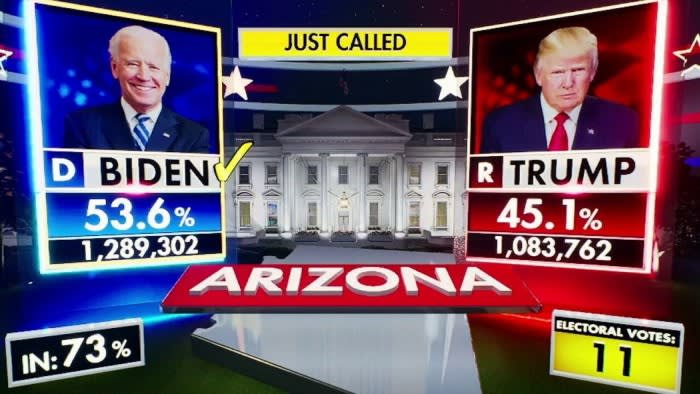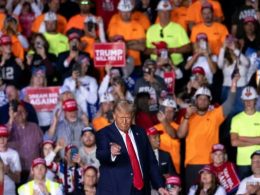Unlock the US Election Countdown newsletter for free
The stories that matter on money and politics in the race for the White House
US news groups are increasing efforts to combat an expected barrage of disinformation during next week’s election, deploying thousands of staff to broadcast from polling places as they look to offset baseless accusations of voter fraud, including by former president Donald Trump.
The Associated Press, which has been tallying the votes for US elections since 1848, was “prepared for misinformation around our race calls”, said Washington bureau chief Anna Johnson. To counter that, the AP was planning “a lot more explanatory work”.
“A decade ago or maybe more, when the AP made a race call, it was just accepted that that was the race call. And there weren’t a lot of questions about it,” she said. “There certainly wasn’t misinformation like there is now.”
Rupert Murdoch’s Fox News, the most-watched US cable news channel, has invested in technology to sharpen its graphics to help viewers visualise how close various vote counts are.
In 2020, Fox was the first network to call Arizona for Joe Biden — a move that infuriated Trump supporters.
Arnon Mishkin, who leads the Fox News “decision desk”, said he stood by that decision and did not feel extra pressure as a result of the controversy. “Obviously we want to be right. That’s the main pressure,” he said in an interview. “In every election there is a possibility of some contention afterwards.”
However, he said Fox had taken measures to ensure that its anchors were not caught off-guard by the decision desk’s calls on the night. “One of the on-air people was talking and saying, ‘wait a second, did we just call Arizona or something?’” he recalled from 2020. “We’ve taken steps to make sure that sort of thing doesn’t happen.”
Media outlets play a critical role in US elections. As votes are cast across the country, Americans depend on these privately held news companies to “call” races in each state, based on a mix of proprietary polling data and vote counts on the night. The process is complicated because procedures and technology differ from one state to another, and even between counties in the same state.
Trump has continued to sow doubt in US election processes, even though his challenges to the 2020 election results were not backed by evidence. The Republican party plans to send thousands of volunteers to monitor for alleged fraud on election night. Meanwhile, trust in mass media has hit a new low, according to a Gallup survey this month.
This cocktail of factors has left US news groups on the defensive, pouring resources into “transparency” efforts.
“The best antidote to disinformation or misinformation is actual information”, said CNN political director David Chalian. CNN will deploy a “robust team” of reporters to battleground states to track the casting of ballots. “Obviously I don’t have control over the bad actors injecting bad information. But we do have control over getting the good, proper, contextualised information to the audience.”
ABC has similarly beefed up a “ballot watch team” to monitor vote counts across the country. “I can anticipate us saying with a fair amount of regularity: this is what we know, but this is what we don’t know. It doesn’t mean there is a problem,” said ABC News political director Rick Klein.
“Some of the issues that happen on election days are just part of a process that’s inherently messy and not necessarily a sign of anything wrong,” he added.
US news groups are preparing for an election night that may not result in a clear winner. In 2020, it took four days for the media to declare that Biden had defeated Trump, leaving Americans in suspense as they waited for votes to be counted in Pennsylvania.
Mishkin predicted that the “over-under” on when a result would be clear was Saturday morning.
“When you look at the map of the country, it’s hard to see either of these candidates getting to 270 electoral votes without Pennsylvania,” he said. “So I will stick to that estimate even though I do think Pennsylvania has done a better job and [is] counting faster, but they’re still counting in the same process. So maybe it’s Friday.”
A close race could extend that timing, Klein said: “If the margin is a few thousand votes, it’s going to take a long time to find out who won.”
Source link









